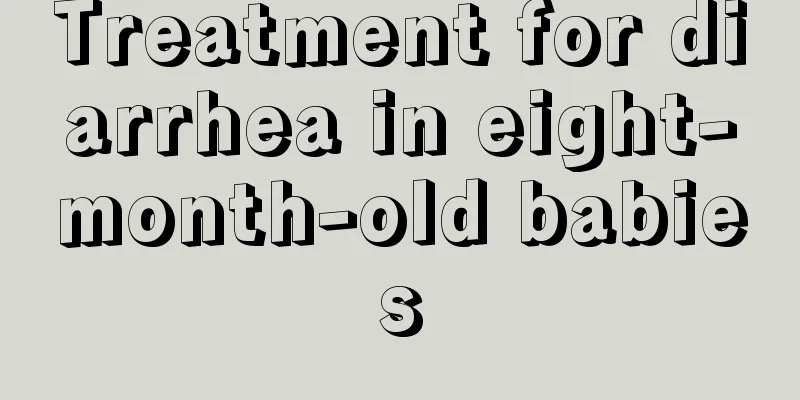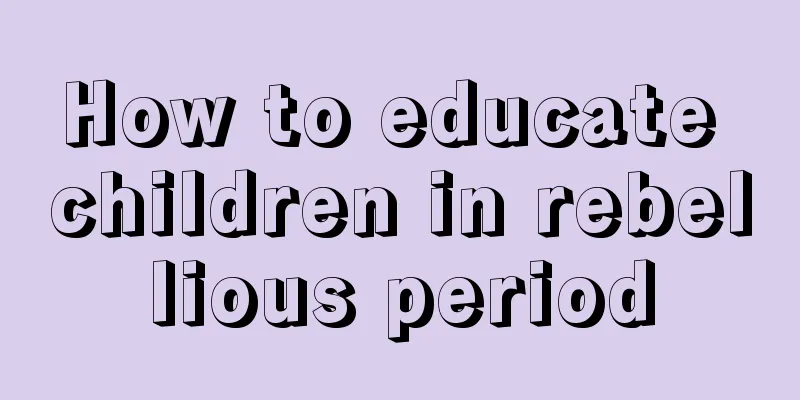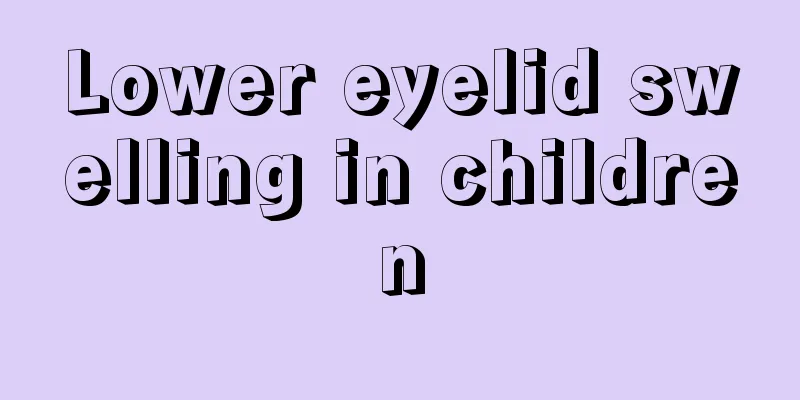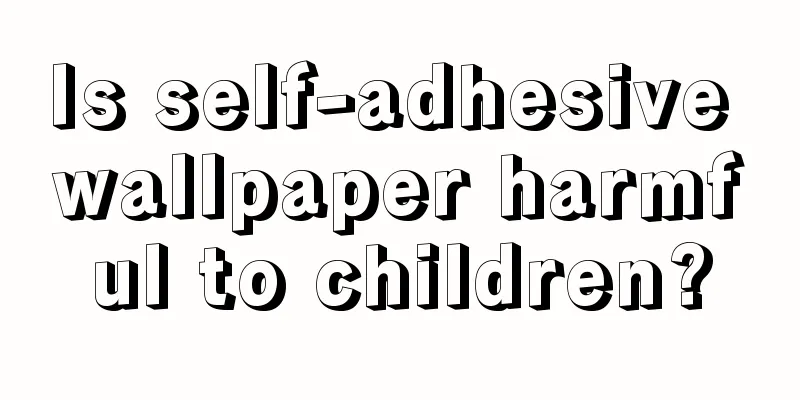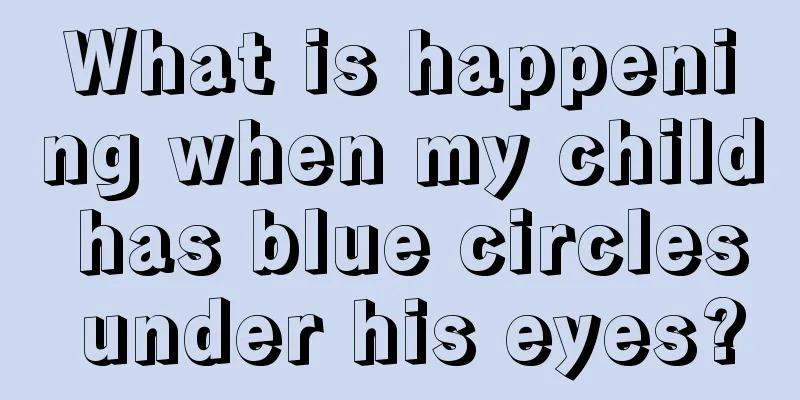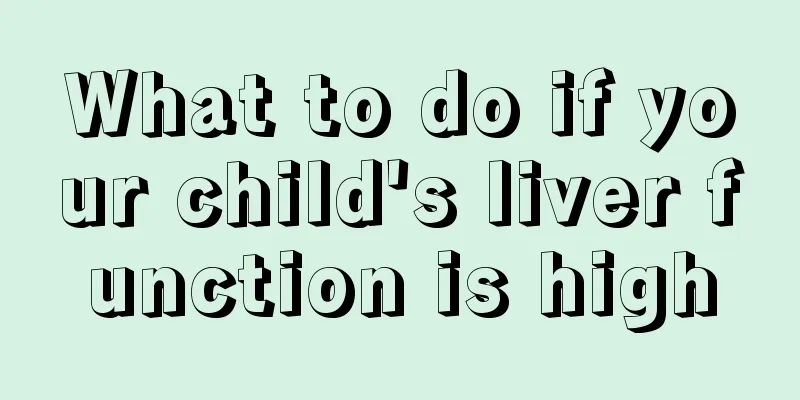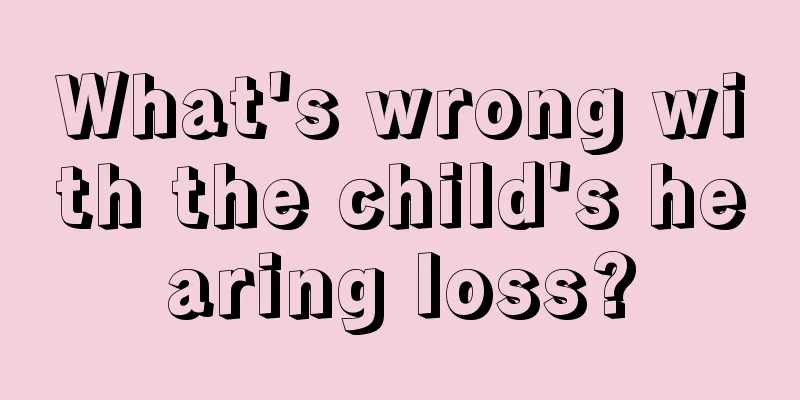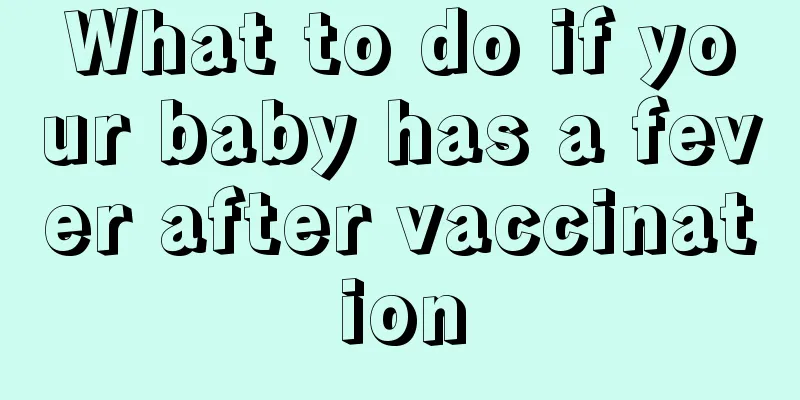Does a child's tooth have a hole that needs to be filled?
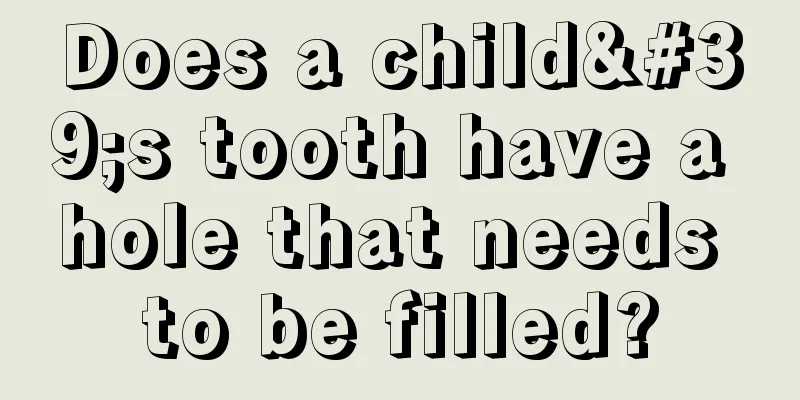
|
Children between the ages of 2 and 14 are susceptible to tooth decay. Some children have uneven teeth, or do not like to brush their teeth after eating sweets and do not pay attention to dental hygiene, which can easily lead to tooth decay. At first, black spots will appear on the teeth, then they will develop into small holes, and slowly the small holes will turn into large holes. Finally, if the tooth decay is serious, it will cause all the teeth to rot. Therefore, when a child has a cavity in his tooth, it is important to fill it in time. 1. The harm of having holes in teeth 1. Affects overall development The tooth cavity will grow from small to large, from shallow to deep, and then invade the dental pulp, causing the child to have toothache and be unable to eat, directly affecting the child's overall development. 2. Affect the eruption of permanent teeth If parents do not seek timely treatment for their children after their teeth are decayed, the deciduous teeth will be lost prematurely, causing the adjacent teeth to occupy the missing parts and making it difficult for them to erupt. 3. Affect jaw development If a child's teeth are decayed, the child can only chew food with the teeth on the opposite side. Over time, this will affect the child's jaw development and even the child's facial appearance. 3. Prevention of dental caries should start from childhood 1. Preventive measures during the fetal period Pregnant women should pay attention to taking in an appropriate amount of calcium, because the development of the fetus's teeth, bones and nervous system requires a lot of calcium. The roots of deciduous teeth and some permanent teeth have been formed under the gums as early as the fetal period, so pregnant women should eat more calcium-rich foods, which is beneficial to the formation of fetal tooth blanks. 2. Avoid eating before bed If you breastfeed or eat before going to bed, the milk and food in your mouth will provide favorable conditions for the growth of bacteria. The fermentation of food residues and the action of bacteria will eventually produce acid, which is the most powerful corrosive agent that damages the quality of tooth enamel. In addition, the pulp cavity of children's deciduous teeth is relatively large, and the outer enamel and dentin are relatively thin, making it easy to develop caries. 3. Eat sugar in moderation Sugar is easily broken down by bacteria to produce acid, and children's diets are mostly sweet, which creates conditions for the production of corrosive acids. Therefore, limit children's sugar intake and tell them to rinse their mouths or drink some water after eating sugar to avoid leaving sugar in their mouths. 4. Regular dental care When a child is two years old, that is, when all his or her deciduous teeth have grown out, you should take your child to have his or her deciduous teeth checked, and have the plaque on the deciduous teeth treated. You should also do local fluoride treatment in order to more effectively prevent tooth decay. 5. Don’t let your teeth lack fluoride If the drinking water contains appropriate amounts of fluoride, the incidence of dental caries in growing children will be reduced to 65%. If the fluoride content in the local drinking water is low, you can brush your teeth with fluoride toothpaste to supplement the teeth's need for fluoride. 6. Develop a good habit of brushing your teeth in the morning and evening Children should be taught to develop the habit of brushing their teeth morning and evening from an early age. It is better to choose a small toothbrush with soft bristles. When brushing, brush vertically along the gaps between teeth. Never brush horizontally in a sawing motion. If the habit is formed, the gums at the roots of the teeth will be worn down when they reach a certain age, exposing the dentin, causing the teeth to lose protection and become more susceptible to corrosion. |
<<: What to do if your child has a hole in his or her big tooth
>>: Baby farts instead of pooping
Recommend
How to care for newborns with respiratory distress
Respiratory disease is a common disease that is g...
Can babies eat hairy crabs?
We all know that children are in the stage of gro...
How to judge strabismus in babies
Infant strabismus is a relatively common disease ...
What are the main symptoms of zinc deficiency in infants and young children?
Zinc deficiency in children is a topic that can n...
Why do babies always lick their lips?
In real life, many babies always love to lick the...
What are the dangers of hypothermia in babies?
A baby's hypothermia can be a great hindrance...
Herpes virus in children
If a child suffers from viral herpes, if the dise...
16-month-old baby early education
Everyone knows that baby's education is more ...
Why is the baby's belly button red?
Many parents find that their baby’s belly button ...
What to do if your baby has a cough and choking throat
What should I do if my baby has a choking cough? ...
What to do if a one-month-old baby has a fever of 37.7
The biggest headache for many young parents is th...
How to treat the sequelae of encephalitis in babies?
The sequelae of baby meningitis is a rather troub...
How to deal with children's fever and cold hands and feet? Three methods can solve it
Many babies may have cold hands and feet when the...
Side effects of intravenous Aqi infusion in children
For many parents, the biggest worry is their chil...
What do freckles look like on children?
Most of us have the impression that children'...


